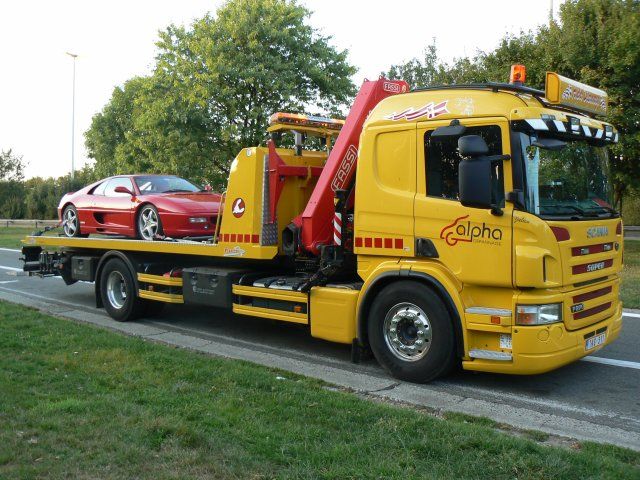Impact of Towing on Vehicle Fuel Efficiency

Towing is a common practice for many vehicle owners, whether it’s pulling a trailer, a boat, or a camper. While towing provides immense convenience and flexibility, it also has a significant impact on vehicle fuel efficiency. Understanding this impact can help you make more informed decisions about your towing practices and manage your vehicle’s performance more effectively.
The Basics of Towing and Fuel Efficiency
When a vehicle tows a heavy load, the engine must work harder to move both the vehicle and the additional weight. This increased workload demands more power and energy, which translates into higher fuel consumption. Essentially, the added weight requires more force to overcome inertia and resistance, leading to a decrease in fuel efficiency. If you would like additional free advice, tips and timely, current information about the impact of towing on vehicle fuel efficiency, you may visit banja luka slep sluzba to learn more.
Several factors contribute to the reduction in fuel efficiency when towing, including:
- Increased Weight: The additional weight of the trailer or load places extra strain on the vehicle’s engine and drivetrain. This extra effort means the engine must burn more fuel to maintain speed and acceleration.
- Aerodynamic Drag: Towing a trailer or large object increases aerodynamic drag. As the vehicle pushes through the air, it faces more resistance, which requires more power and, consequently, more fuel to overcome.
- Rolling Resistance: The rolling resistance of the trailer’s tires also plays a role. Heavier loads and larger tires create more friction on the road, demanding additional energy from the vehicle to keep moving.
- Transmission and Engine Strain: Towing can put extra strain on the vehicle’s transmission and engine, potentially causing them to work less efficiently. Over time, this additional strain can lead to increased fuel consumption.
How Towing Affects Different Types of Vehicles
The impact of towing on fuel efficiency can vary depending on the type of vehicle you’re using. Here’s a breakdown of how towing affects different vehicle categories:
- Cars and SUVs: For cars and SUVs not specifically designed for towing, the impact on fuel efficiency can be quite pronounced. These vehicles often have smaller engines and less robust transmissions, which are not optimized for handling heavy loads. As a result, you might see a noticeable drop in fuel economy when towing.
- Trucks and SUVs Designed for Towing: Vehicles designed with towing in mind, such as pickup trucks and certain SUVs, generally handle towing better than their non-towing counterparts. They are equipped with more powerful engines, upgraded transmissions, and improved cooling systems to manage the increased strain. However, even these vehicles will experience a reduction in fuel efficiency when towing.
- Electric Vehicles (EVs): For electric vehicles, towing can be particularly challenging. The added weight and drag can significantly reduce the vehicle’s range, as electric motors rely on battery power. The decrease in efficiency can be more pronounced for EVs due to their reliance on electric energy for propulsion.

Strategies to Mitigate Fuel Efficiency Loss
While towing will inevitably impact fuel efficiency, there are several strategies you can employ to minimize the effect:
- Ensure Proper Loading: Properly distribute the load within the trailer to ensure that it’s balanced. An evenly distributed load reduces drag and rolling resistance, which can help improve fuel efficiency.
- Use the Right Gear: Make sure you’re using the appropriate gear for towing. Many modern vehicles have a tow/haul mode that optimizes engine performance and transmission shifts for towing. Utilizing this mode can help improve fuel efficiency.
- Maintain Proper Tire Pressure: Both your vehicle’s tires and the trailer’s tires should be properly inflated. Under-inflated tires create more rolling resistance, which can negatively impact fuel economy.
- Regular Maintenance: Keep your vehicle well-maintained, including regular oil changes, air filter replacements, and transmission checks. A well-maintained engine and transmission will perform more efficiently and consume less fuel.
- Drive Smoothly: Avoid rapid acceleration and hard braking when towing. Smooth driving helps maintain a steady speed and reduces the additional strain on your vehicle, leading to better fuel efficiency.
- Reduce Speed: Driving at lower speeds can help improve fuel efficiency when towing. Higher speeds increase aerodynamic drag and fuel consumption, so keeping your speed in check can help mitigate these effects.
The Environmental Impact
The increased fuel consumption associated with towing also has environmental implications. Higher fuel consumption leads to greater emissions of greenhouse gases and other pollutants. To minimize your environmental footprint, consider the following:
- Use Alternative Transport: Whenever possible, consider using alternative modes of transport or renting a vehicle designed for towing, rather than using your primary vehicle for towing purposes.
- Optimize Routes: Plan your routes to avoid traffic congestion and reduce the amount of time spent idling. Efficient route planning can help reduce fuel consumption and emissions.
- Consider a Hybrid or Electric Tow Vehicle: If towing is a regular part of your routine, you might consider investing in a hybrid or electric vehicle designed for towing. While these options may have higher upfront costs, they can offer improved fuel efficiency and reduced emissions in the long run.
Conclusion
Towing can significantly impact a vehicle’s fuel efficiency, but understanding the factors involved and implementing effective strategies can help mitigate these effects. By ensuring proper loading, maintaining your vehicle, driving smoothly, and considering alternative transport options, you can manage the impact of towing on fuel consumption and minimize your environmental footprint. Whether you’re towing for recreation or necessity, a thoughtful approach can help you balance performance and efficiency, making your towing experience more manageable and sustainable.

